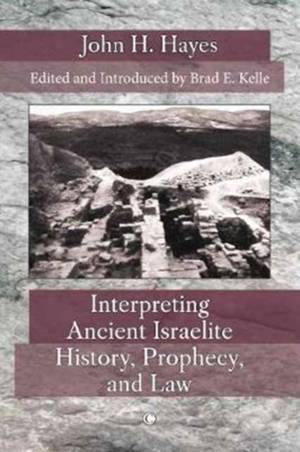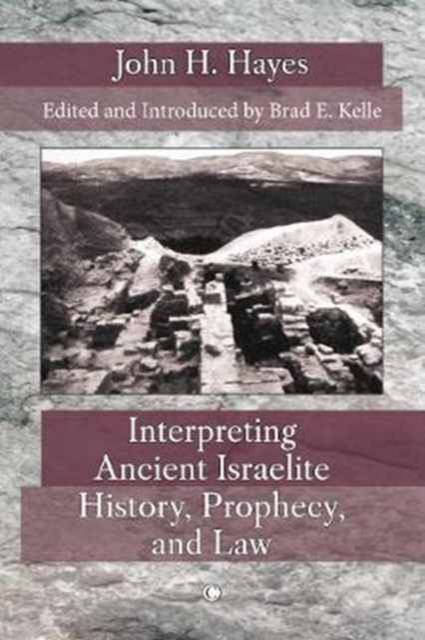
Bedankt voor het vertrouwen het afgelopen jaar! Om jou te bedanken bieden we GRATIS verzending (in België) aan op alles gedurende de hele maand januari.
- Afhalen na 1 uur in een winkel met voorraad
- In januari gratis thuislevering in België
- Ruim aanbod met 7 miljoen producten
Bedankt voor het vertrouwen het afgelopen jaar! Om jou te bedanken bieden we GRATIS verzending (in België) aan op alles gedurende de hele maand januari.
- Afhalen na 1 uur in een winkel met voorraad
- In januari gratis thuislevering in België
- Ruim aanbod met 7 miljoen producten
Zoeken
€ 38,45
+ 76 punten
Uitvoering
Omschrijving
For more than five decades, John Hayes's scholarship has had a decisive influence on scholars and students in the field of Hebrew Bible study. This collection of ten essays, written between 1968 and 1995, displays his remarkable and thought-provoking elucidation of Israelite history, prophecy, and law. These essays make significant contributions that challenge the mainstream scholarship establishment with their daring interpretations and explanations, along with their bold, innovative theories. The way in which Hayes approaches the study of seminal figures, biblical texts, and historical reconstructions, combined with his analysis of specific methods, will have lasting implications for contemporary scholarship. He argues that biblical texts must be understood as being embedded within the particular historical, social, cultural, and political matrices from which they emerged. Whether exploring the social formation of early Israel, the final years of Samaria, or the social concept ofcovenant, he demonstrates a textually focussed and exegetically based approach. Hayes's essays provide valuable insights that help contextualise developments within mid- to late-twentieth-century interpretation, thereby granting scholars glimpsesof key moments in the evolution of particular methods, trends, and models that have given shape to current research approaches. Familiarity with Hayes's writings thus allows contemporary interpreters to envisage new avenues and perspectives in critical discussion of the Hebrew Bible.
Specificaties
Betrokkenen
- Auteur(s):
- Uitgeverij:
Inhoud
- Aantal bladzijden:
- 318
- Taal:
- Engels
Eigenschappen
- Productcode (EAN):
- 9780227176511
- Verschijningsdatum:
- 27/04/2017
- Uitvoering:
- Paperback
- Formaat:
- Trade paperback (VS)
- Afmetingen:
- 152 mm x 229 mm
- Gewicht:
- 470 g

Alleen bij Standaard Boekhandel
+ 76 punten op je klantenkaart van Standaard Boekhandel
Beoordelingen
We publiceren alleen reviews die voldoen aan de voorwaarden voor reviews. Bekijk onze voorwaarden voor reviews.









